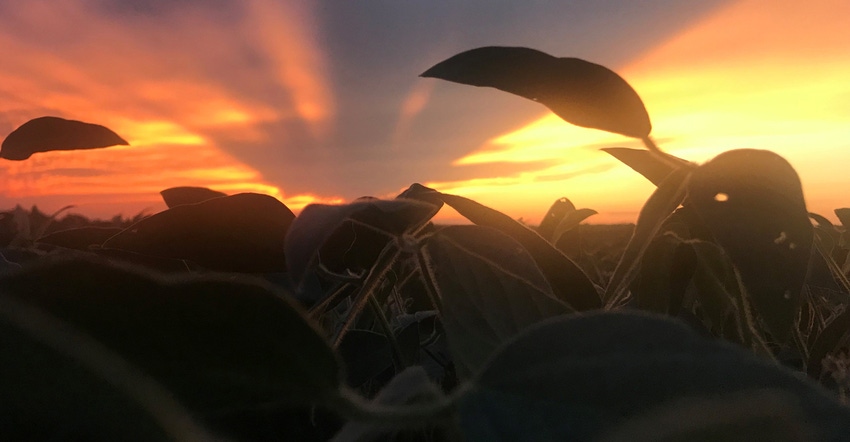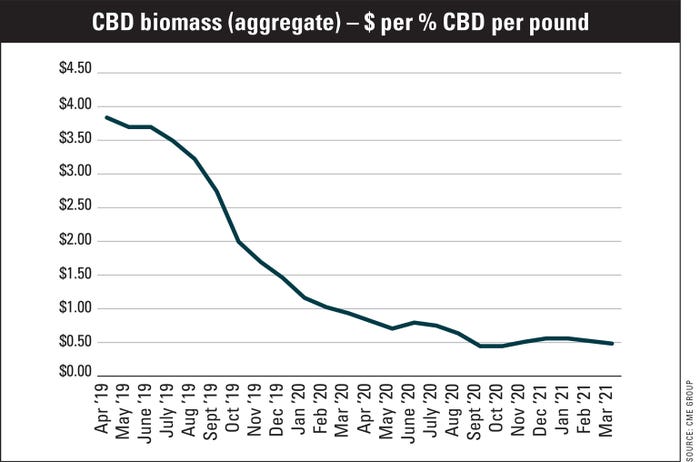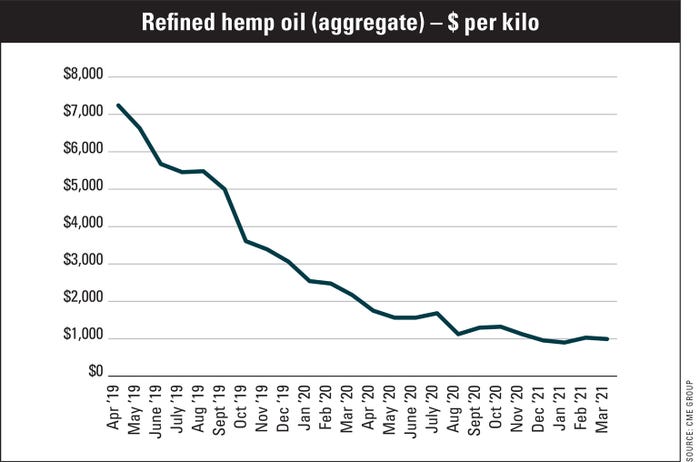October 11, 2021

In 2018, Rolling Meadows Farm Brewery, a microbrewery in central Illinois, wanted to explore growing hemp flowers for CBD oil production as a fit for their brewery customer base. They asked their farm manager, Kent Kraft of Farmland Solutions, Sherman, Ill., to make it happen.
Kraft saw it as an opportunity to learn about a new crop — and he found it intriguing. It was an interesting alternative to monoculture corn and soybean production, which has historically tight margins. It also promised opportunity for smaller producers looking to diversify their production. Kraft jumped in and learned as much as he could, attending as many hemp forums and classes as he could find, and even attending Hemp College in Lexington, Ky.
He found there were a number of challenges to get into a brand-new crop like the industrial hemp business, and scarcity was the underlying theme. Think scarcity of knowledge, experience, seed, processors and market contracts.
Kraft applied for a license online with the Illinois Department of Agriculture, and the department approved his application within a day. On the financial side, he learned that many federally charted banks were unwilling to loan money for an operation legal in some states but not others. Further, some banks even considered severing all business and personal ties with industrial hemp growers.
With everything in place, Kraft purchased seed for $1.50 per seed, started production in a greenhouse and transplanted the hemp plants into a converted pasture. Agronomically, hemp is a challenging crop to grow. The plant is fragile and susceptible to wind, insects, rodents and mammals. Weed control was difficult, with few to no options available for chemical control at the time. Kraft resorted to controlling weeds through using straw mulch, hoeing, string trimming and even hand-pulling — with mixed results. Still, weeds persisted.
Processing problems
All told, Kraft’s hemp production had a good first year and made a decent crop. The hemp produced a good crop of flowers, which were then dried and cured for the oil. The THC (tetrahydrocannabinol, which gives marijuana its psychoactive properties) level came in under 0.3% — good news, because at levels above 0.3%, the hemp crop would have to be destroyed.
Buoyed by the production success, Kraft’s landowner opted for another year of production in 2020. Airborne pollen affected flower production, reducing oil content.
It was downhill from there. By 2021, they decided to get out of the hemp business altogether, due to lack of profitability.
They could grow it; they just couldn’t sell it.

The market was flooded, as farmers were promised the potential of six figures-plus per acre –— and they produced accordingly. With so much product on the market, processors can pick and choose what product they want to buy and who they want to buy from.
Kraft learned that those growers who’d been in the business for a while and had established relationships and contracts are still getting by.

Kraft’s takeaway in the end? There’s a place for industrial hemp production in ag. And learning hemp production was a good experience, but it’s not profitable for them.
Lauher owns Rolling Acres Ag Solutions and is a member of the Illinois Society of Professional Farm Managers and Rural Appraisers. Email questions to [email protected]. The opinions of this writer are not necessarily those of Farm Progress/Informa.
You May Also Like




